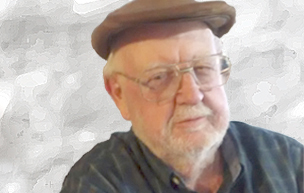“There’s nothing in the middle of the road but a yellow stripe and dead armadillos.”
Even if you’re not aware of the pith of Jim Hightower, you’ll recognize that the above quote didn’t come from around here. I’ll bet that most readers of the Sun Journal have not seen an armadillo, dead or alive, in the middle of the road or at the side.
This quote was Hightower’s way of dissing political moderates. I have laughed with and disagreed with Hightower for years. His radio program, “The Hightower Lowdown,” was once must-hear radio for me.
He is on one side of a fight that infects public life. On the other side are such as Rush Limbaugh. The other side has been in the ascendancy for a while. The mark of each side is making extreme statements, sometimes for laughs, as Hightower, sometimes for effect, as when Limbaugh said (without evidence) Barack Obama “hates white people.”
I see two causes of the nastiness. One is isolation, the other is the anti-social media.
Robert Putnam, wrote in “Bowling Alone” that Americans have become more disconnected from family, friends, neighbors and democratic structures. Especially important, he wrote, was the decline in membership in organizations that hold meetings.
It may seem a stretch that going to meetings is crucial to democracy, but look at it this way. If you join a club, you are operating under a set of rules that govern meetings. You and the people with whom you meet share something in common. You will see these people again and again. You have a stake in the consequences.
Putnam called this social capital. He found that participating in a group halves your odds of dying within a year. He found that between 1975 and 2000, attendance at club meetings dropped 58 percent, having family dinner dropped 43 percent and having friends over dropped 35 percent. Those are huge drops in our contacts with other people.
The anti-social media let people put anything out in public without taking responsibility for its accuracy. By allowing people to post anonymously, the anti-social media let damaging and often untrue statements into the public arena. Can you say “fake news?” If the anti-social media didn’t invent it, they certainly have fostered it.
An example. On Thursday, a Bangor Daily News reader replied to a column on the BDN website, “Another hit piece authored by Trump-hater Dana Milbank from the Washington Post. Nuf said.” No substance, just conclusion and insult.
This is a key point about traditional media. When you read an article in the Sun Journal, the reporter and the newspaper are saying that to the best of their knowledge at the time of writing, this story was true. They have researched the topic looking for the truth.
Whatever its cause, the nastiness will stay until moderates step up. Yphtach Lelkes, a political scientist at the University of Pennsylvania, writes, “We need politicians who are politically moderate. Unfortunately, voters prefer politicians of their own party who are politically extreme. This incentivizes extreme political candidates.”
As the late Molly Ivins, fellow Texan and fellow liberal of Hightower, said, “Polarizing people is a good way to win an election and also a good way to wreck a country.”
Despite the inflammatory ends of the political spectrum, every survey, no matter its sponsors’ slant, shows that most Americans identify as politically moderate. Yet, our parties move steadily to the extremes, and vote analysis shows that in Congress the most conservative Democrat is more liberal than the most liberal Republican. And vice versa.
It wasn’t always this way. The late Sen. Everett Dirksen, R-Ill., saw the virtue of equal footing for all Americans and persuaded GOP colleagues to support the civil rights act of 1964. In a key Senate vote, Dirksen brought along 26 other Republicans to end debate, clearing the way for the historic legislation. It was a departure for Republicans, who have long argued for states’ rights over federal action.
Dirksen’s wasn’t unique in his about-face. Twenty-one Democrats voted in 2002 to authorize President George W. Bush to invade Iraq. Joe Biden of Delaware and Hillary Clinton of New York were among them. The point isn’t that the line-crossers were right. It is that the national interest as they saw it could lead them to cooperate with the other side. For my money, Dirksen was correct, and Biden and Clinton were wrong.
Dirksen said about his leadership: “I trust that the time will never come . . . when the waters of partisanship will flow so swift and so deep as to obscure my estimate of the national interest.” His trust was mislaid. Today the waters of partisanship flow so swift and so deep as to obscure the national interest.
“It’s just so uncommon for people (on either political side) to break ranks.” That’s U.S. Rep. Jared Golden, D-Maine, speaking. Steve Collins wrote in the Sun Journal that Golden is the Democrat third most likely to vote with President Trump. Golden has done so 9 percent of the time. The Democrats who stray more are Collin Peterson of Minnesota and Alexandria Ocasio-Cortez of New York, who has voted with Trump 14 percent of the time. “We’re both kind of anti-establishment,” Golden said of himself and Ocasio-Cortez.
Let’s Hightower conclude this. “Democracy is not something that happens . . . just at election time and it’s not something that happens just with one event. It’s an ongoing building process. But it also ought to be a part of our culture, a part of our lives.” On this one, I agree wholeheartedly.
Bob Neal toyed with naming his column “The Militant Moderate,” but that seemed too limiting. He chose “The Countryman,” hoping his rural slant could be helpful to readers.
Send questions/comments to the editors.



Comments are no longer available on this story